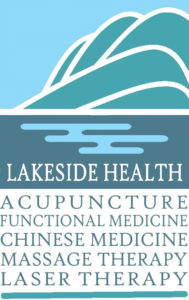“Smoke gets in your eyes” from summer wildfires so frequently now. But worse, it gets into the lining of our lungs, our blood vessels, into our cells.
Wildfire smoke inhalation affects all of us, but most vulnerable are children and people with respiratory illnesses and cardiovascular issues.
Some of us carry genetic differences making us more susceptible to particulates and air pollution.
What does smoke do? It inflames our lungs, where it stirs up immune cells and debris, dysregulates the autonomic function of our hearts, inflames blood vessels, increases oxidative stress and depletes our critical ‘built-in’ detox molecule, glutathione.
But there are readily available and evidence-based things we can do.
Many of us can’t afford a high-quality indoor air filtration system. But you can make a very effective home air cleaner using four furnace filters, a box fan, an
d duct tape. Google “CBC and homemade air filter” for the video.
Many of us still have pandemic stocks of N-95 masks. Protect yourself by wearing a mask outdoors on heavily smoky days.
Human studies have shown that specific nutrients from food or supplements protect against smoke exposure damage.
The readily available B vitamins, folic acid with vitamins B6 and B12, given for four weeks significantly reduced the inflammatory effects of small particulates on the heart, normalized heart rate and white blood cell counts.
Common antioxidants, vitamin C (500 mg four times a day) and vitamin E, decreased airway irritation and improved airflow in asthmatics. They also increase the activity of our body’s powerful ‘built-in’ antioxidants glutathione, superoxide dismutase and catalase. Eating cruciferous vegetables such as broccoli, broccoli sprouts, kale, cauliflower, etc., increases our ability to detoxify air pollution through glutathione.
Easily available and inexpensive, the amino acid N-acetyl cysteine (NAC) reduces lung inflammation from pollutants by promoting our body’s glutathione production. NAC is an effective mucolytic, mobilizing the movement of harmful substances from our lungs.
These nutrients are low cost and can be used preventively, daily. (NAC, E, C, Bs). As they say, an ounce of prevention…
Donna Rasplica MSc, Dr.TCM, IFM Certified Functional Medicine Practitioner, Lakeside Health, Salmon Arm.
July 30, 2023



